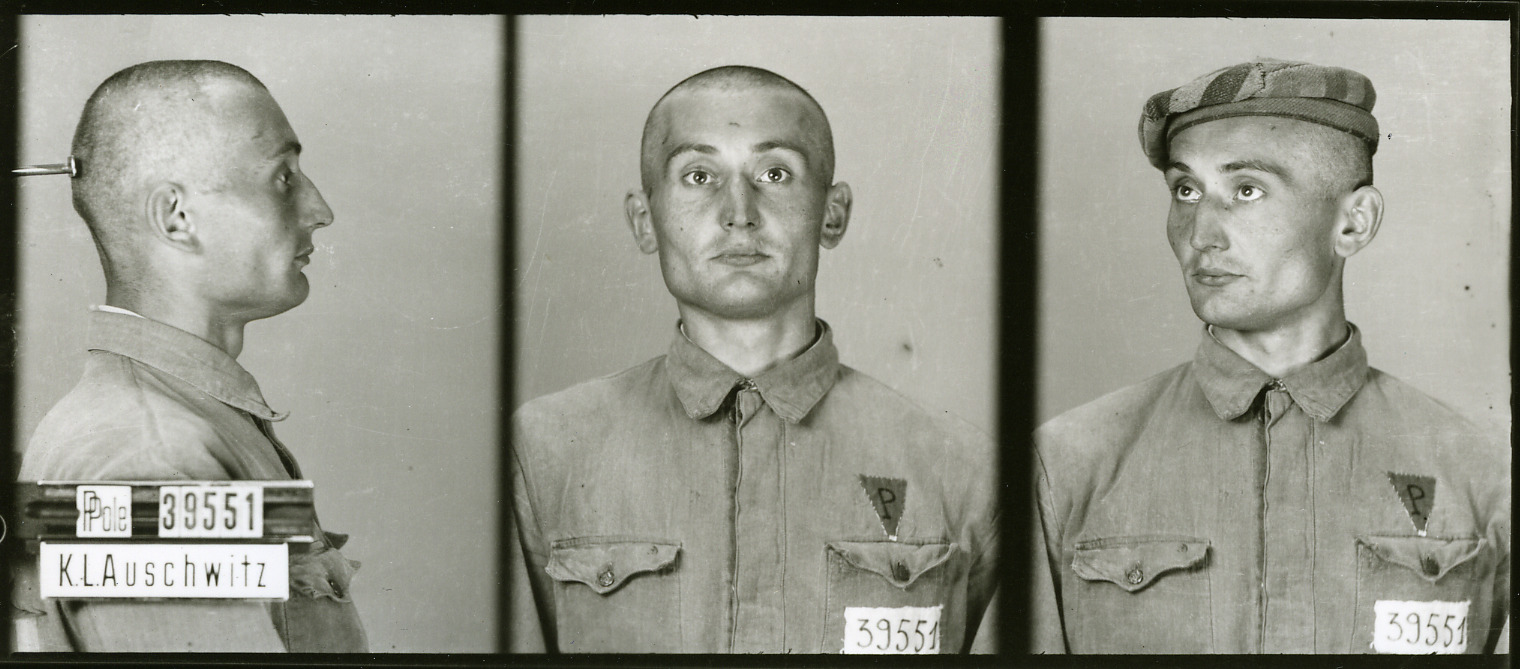‘Henry: A Polish Swimmer’s True Story of Friendship from Auschwitz to America’ by Katrina Shawver

Photo Courtesy of Katrina Shawver



Katrina Shawver met Henry Zguda in 2002. Soon after hearing the Polish Catholic’s story of survival of German concentration camps, she offered to write his incredible story, devoting many years researching Poland, World War II and the Holocaust in order to accurately document every detail of it in her book, “Henry: A Polish Swimmer’s True Story of Friendship from Auschwitz to America.”
Zguda’s story begins one night in May 1942, when the German SS arrested the celebrated competitive swimmer in Kraków for the sole crime of being Polish. Two weeks later, he was far from the life he had known, interred as political prisoner No. 39551 at Auschwitz.
Told through a series of heartfelt conversations, Zguda recounts his gut-wrenching story of miraculous survival and of refusing to succumb, even amidst the most brutal of horrors. Meticulous research and original photos and documents add a depth of history that goes beyond one man’s story.
How did the Henry I know survive this?
On a cold, gray, dismal day in October 2013, my husband and I visited the Auschwitz-Birkenau State Museum. After hours of poring through documents in the archives, we spent three hours touring the institution’s two primary sites, Auschwitz I, originally a Polish army camp before the Germans repurposed it as a concentration camp, houses the museum and offices. The massive Birkenau, or Auschwitz II — built three kilometers away to hold more than 100,000 people at one time — stands mostly empty and silent, save for tourists.
My husband and I, and our private tour guide Magda, remained the only three humans at the lonely entrance to Birkenau as the camp closed at seven o’clock that evening. Most tourists avoid the uncomfortable cold, not realizing this is the truer experience of a concentration camp.
As we stood near the arched entry over the train tracks to hell, I shivered — not from the fading daylight and rapidly dropping temperatures, but from the chilling presence of the ghosts of more than a million murdered innocent souls.
Each cried out to me . . . “Do not forget us.”
“Henry: A Polish Swimmer’s True Story of Friendship from Auschwitz to America” by Katrina Shawver
Shawver has called the Ahwatukee area of Phoenix home since 1985, when she married her husband, Rick. The writer, experienced public speaker and lifelong history geek is grateful to live close enough to South Mountain so that she can go hiking anytime she desires. She is a member of Toastmasters and loves to relax with a good book, a glass of Merlot and chocolate.
Honored to announce “Henry: A Polish Swimmer’s True Story of Friendship from Auschwitz to America” as the latest selection in its summer book club, Images Arizona caught up with Shawver to ask the author a few questions about the non-fiction work, which has won a number of prestigious awards — including the Polish Heritage Award as well as first place for published nonfiction in the 2018 Arizona Authors Association Literary Contest.
From where did you receive your inspiration for this book?
First, I am drawn to true stories, biographies or historical novels based on true events. Even as a young reader, I have been a history geek, lover of biographies and believer in happily ever after. For me, history is about people — what they experienced, how they survived, what they endured and the choices they made. Even the word “history” is broken down into “his-story.”
In the front of my book, I included this quote by A. Whitney Brown: “The past actually happened, but history is only what someone wrote down.”
I met Henry Zguda by chance when I wrote for The Arizona Republic. When I met Henry Zguda, my only goal was enough information to craft an interesting 600-word newspaper column. From the very first interview, I sensed a much greater compelling and unusual story at risk of being lost forever. Henry had no siblings and never had children, so there was no one else to hand his stories to. Conversely, he had already told me “Nobody is interested in my stories. I’ve told [his wife] Nancy to throw everything out when I’m gone.” That statement got to me.
I still cannot explain why I called him up and suggested we work together to write his story. He was already 85 years old, so I knew the stories had to be captured right away. From the very beginning, the story came to me unexpectedly and stayed with me for reasons I cannot explain. I set it aside more than once as the size of the task overwhelmed me. But it kept calling to me, the right people continued to come into my life at the right time, so it was meant to be. I am following a higher power in finishing this book.
What themes did you aspire to tackle with this particular work? Did any other themes reveal themselves to you during the writing process?
This book reflects my innate curiosity and the desire to provoke thought. The need to tell lesser-known stories drove my newspaper and blog writing and propelled this book project forward.
Besides the human side of one man’s experience, I soon came to realize that Henry’s story represents millions of Poles, who have received little recognition for their suffering during World War II in this country. Henry was a Catholic Pole who had been arrested, tortured and imprisoned for three years in concentration camps for one reason only: he was Polish, and Germany had sworn to destroy all of Poland.
Yet, no matter to whom I mentioned this gentleman and project, universally everyone responded with a comment akin to, “What? He wasn’t Jewish? Why was he arrested? There were only Jews in the Holocaust.” What is lost in most Holocaust education is that six million Poles lost their lives under both Hitler and Stalin. Three million were Polish, and three million were Christian.
The Holocaust genocide is a subset of the devastating consequences and death count of World War II. Furthermore, Poland did not exist as a country during World War II. Its government was exiled to England, and the country fell under Nazi and Soviet rule and laws. Holocaust education only talks about the genocide under Hitler, not the devastation, murder, and deportation of nearly a half-million Poles wrought by Stalin against Poland.
Henry once told me people did not believe he was in a concentration camp because he did not have a tattoo, which is a totally false presumption to believe that all prisoners were tattooed. The lack of credit he received in this country energized my dedication to get this story out into the world.
What or how are you hoping your book makes readers feel? What other takeaways do you hope they have?
I would love if every reader remembered that the Holocaust as taught today is truly a subset of the full brutality inflicted on countries invaded and conquered by both Hitler and Stalin.
Even in a concentration camp, there were times Henry kept a sense of humor, something not included in other Holocaust memoirs I have read. “You either laugh or cry. I chose to laugh when I could.”
There is power in friendship, and indeed friendship remains a common thread throughout, including the close friendship Henry, his wife Nancy, and I shared. He always said “I’m nobody special. I survived because I was lucky, and friends helped me.” Indeed, Henry made friends wherever he went.
Ultimately, I hope people finish with a renewed sense of hope, and perhaps a renewed interest in history. Henry made me promise to not just write about the war. He told me he had a good life after the war, and to be sure and include that. Henry lived to be 85 years old.
What are some of your own takeaways? Specifically, did your subject teach you anything?
Meeting Henry Zguda changed the trajectory of my life in several ways. First, I became an author, determined to write a story that would otherwise be lost to history. Many times, during the arduous tasks of writing, compiling stories, and extensive research, two lessons from my father came back to me. First, you don’t get if you don’t ask. Secondly, be careful what you ask for as you might get it.
I am far more conscious of not wasting food. Food was precious for Henry’s entire life, and the book includes several stories centered around food. One time he bemoaned the fact that Americans actually give their children skim milk. “In Poland, if you sold skim milk you went to jail. No one was allowed to skim the fat for themselves. Children need the fat to grow.”
Another time he expressed confusion at so many ads on television for weight loss programs. “Losing weight is so simple. Stop eating. Then you save money. Let me tell you, under communism, you stand in lines forever just to get food. Why pay more money to eat less food?”
Perhaps most importantly, Henry showed me the value of enjoying life in the moment, and not letting past tragedies or regrets taint the future. Henry survived hell on earth, and then he went on to live an incredible life. He had seen the worst of men and chose to look forward rather than back. I find inspiration in that philosophy.
“Henry: A Polish Swimmer’s True Story of Friendship from Auschwitz to America” was published in 2017 and is currently available in English, Polish and Czech in hardback, paperback, ebook and audiobook.

